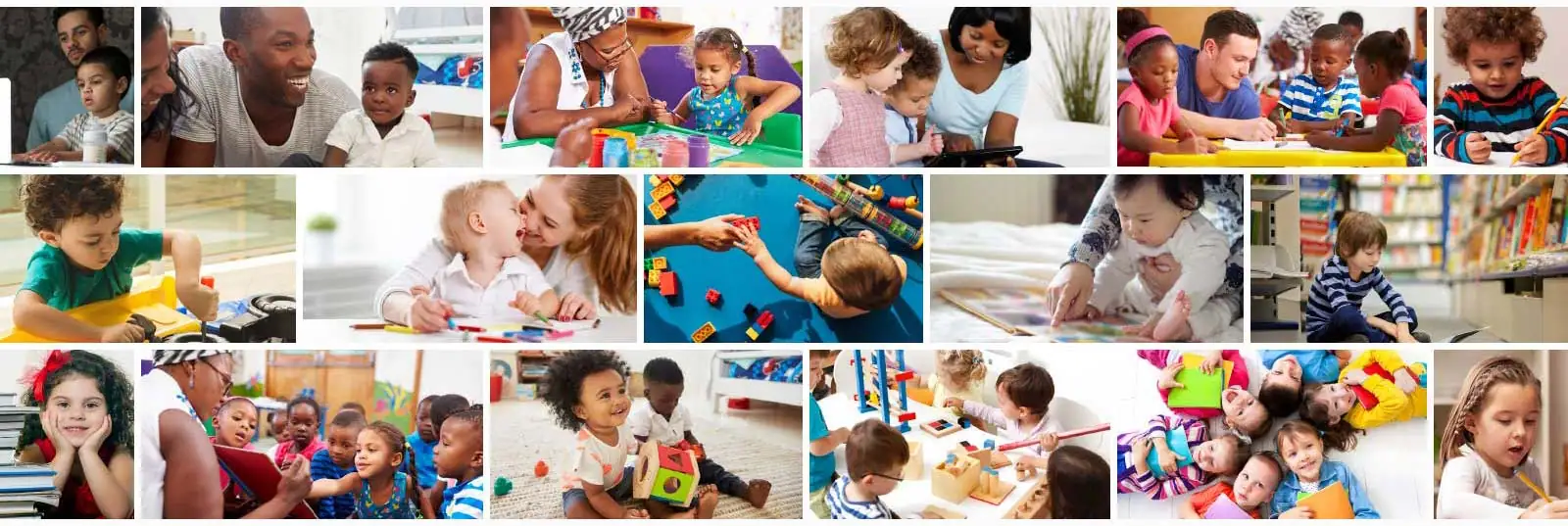Bright Start TN Clearinghouse
Browse by Measure of Success by clicking the tabs. You may also search the Clearinghouse below.
High-Quality Early Learning
Health & Development
Family & Community
Measure Of Success
Positive Parent/Child Interaction
The major indicator for this measure of success is the average number of minutes per day that parents talk or play with their children.
Positive parent/child interaction enhances a child’s cognitive, behavioral, and social emotional development. Talking and reading to young children and physically interacting with them in a positive manner enhances a child’s cognitive and behavioral development trajectory. The effect of positive interaction with children on cognitive and behavioral development is even greater when parents engage in play and support their children with exploration, communication, and problem-solving. Cognitive stimulated play with children as young as two years old can lead to higher math, reading and vocabulary competency that is maintained for at least ten years.
- Nandy et al_2020_Parental toy play and toddlers’ socio-emotional development: Study of parent-child toy play interactions among 77 parent-child dyads, with a specific focus on coparenting dynamics. Children were toddlers ages 21-27 months. Measures of parent-child play included parents’ engagement, observation of and verbal facilitation of toy play. Social emotional development was measured using a scale that captured several metrics including self-regulation, ability to communicate needs, and using emotions in an interactive manner. Found that maternal toy play was positively associated with a child’s social emotional development, but only when there was a supportive co parenting dynamic present. Weak evidence (not statistically significant) of maternal model play strategies improving social emotional development.
- Hernandez-Alava and Popli_2017_Children’s Development and Parental Input: Longitudinal analysis of 9,602 9-month old babies in the Millennium Cohort Study in the United Kingdom measuring impact of parent investment on child cognitive and non-cognitive development by age 7. Cognitive measures included motor and communicative gestures; non-cognitive (behavioral) measures included distress, withdrawal and regularity. Results showed that parent investment, as measured by talking with the baby and other physical interactions such as cuddling, significantly improved the trajectory of a child’s cognitive and non-cognitive development. Reading to children was especially predictive of their developmental outcomes.
- Weisleder et al_2019_Links between Shared Reading and Play: Randomized control trial of 362 mother-child dyads with low incomes who participated in parent-child interaction interventions between 2005 and 2008. Interventions promoted reading aloud and play between parents and children. Children were assessed at 6 and 36 months old. Analyzed the effects of the intervention on child behavioral outcomes. Found that the interventions improved child behavioral outcomes, and were especially effective when parental cognitive stimulation and psychosocial functioning was higher.
- Cook et al_2011_Fathers’ and Mothers’ Cognitive Stimulation in Early Play with Toddlers: Analysis of parent-child interactions among 229 Early Head Start children and their parents. Interactions were observed when children were two years old and cognitive outcomes such as math, reading and vocabulary proficiency, were assessed both at age 3 and in 5th grade. Results indicated that cognitive stimulated play, as defined by parents’ engagement in play and if parents supported their children with exploration, communication and problem-solving, predicted a child’s academic outcomes up to ten years later.
Return to Clearinghouse Home




